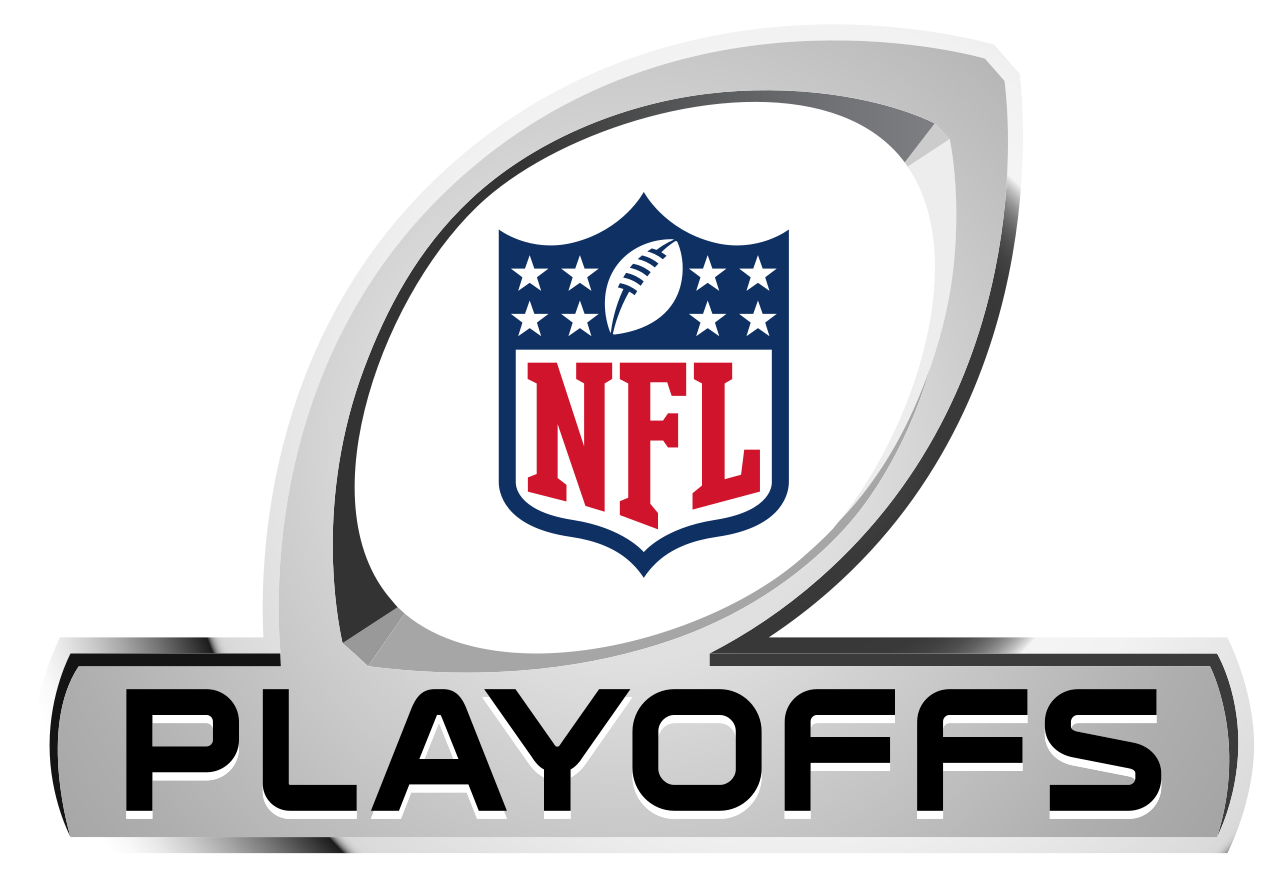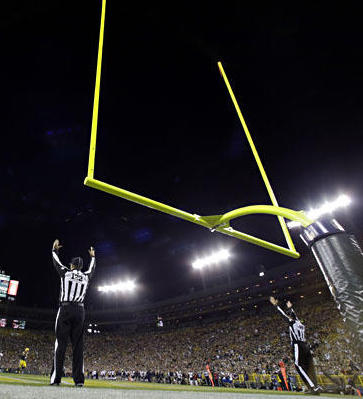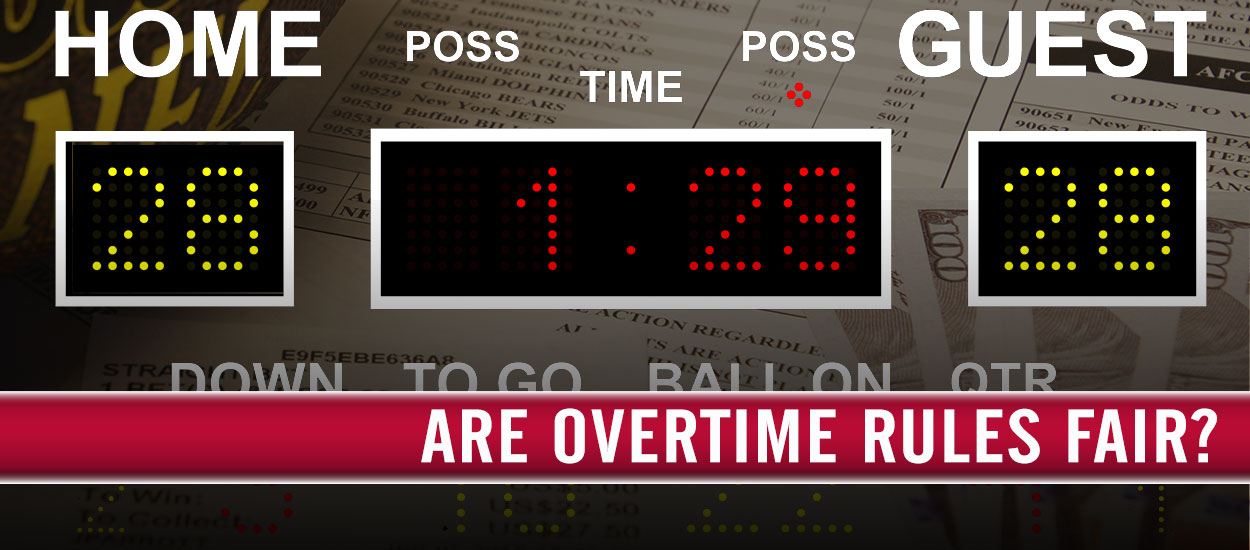After Harrison Butker kicked a 49-yard field goal in the Buffalo Bills-Kansas City AFC Divisional Playoff to send the game to overtime, it was clear that the epic game would be decided by the coin toss. With the defenses on both sides all but worn out and with both quarterbacks in a groove where they weren’t missing any receivers, it was clear that the team which had possession first in OT would win the game.
Buffalo’s Josh Allen called tails, it came up heads, and for all intents and purposes the game was over.
Make no mistake, the Buffalo Bills had only themselves to blame for several questionable decisions in the last 13 seconds, which allowed Kansas City to tie the game, but that is irrelevant to the issue at hand, namely that a game shouldn’t come down to pure chance. And by definition a coin toss is 50-50. In the AFC championship game in January 2019, the Kansas City Chiefs lost the coin toss in overtime to the New England Patriots and in an eerily similar game, Patrick Mahomes never touched the ball again, as New England went on to win the game and eventually, the Super Bowl. It was expected at that time that the league may revisit the overtime rule, but they never did. To Travis Kelce’s credit he said the same thing after the Buffalo game as he did in 2019 after the New England game, namely that the current OT rule is an unfair way to decide an important game.
In the AFC championship game in January 2019, the Kansas City Chiefs lost the coin toss in overtime to the New England Patriots and in an eerily similar game, Patrick Mahomes never touched the ball again, as New England went on to win the game and eventually, the Super Bowl. It was expected at that time that the league may revisit the overtime rule, but they never did. To Travis Kelce’s credit he said the same thing after the Buffalo game as he did in 2019 after the New England game, namely that the current OT rule is an unfair way to decide an important game.
Until 1974, overtime in football didn’t exist. From 1974 to 2011 the game was sudden death, but in 2012 after numerous complaints by several interests about teams winning the coin toss and simply marching 40 yards downfield and kicking a field goal to cement the win, the league modified the overtime rule so that the team which wins the coin toss and receives the ball first can’t win the game on a field goal. If the first team doesn’t score a touchdown, then the other team has the chance to possess the ball. The league made the change despite noting at that time that each team has an equal chance to win the coin toss and that getting the ball first isn’t as big an advantage as most think. With the rules in place, 160 overtime games have been played and the team receiving the ball first has won 52% of the time, the team kicking off has won 42% of the time and 6% of the time the game ended in a tie. Mind you in more recent years, as teams have become more offensive minded, the team getting the ball has won the game on the opening drive of OT far more often than 10 years ago.
While fans and teams have generally complained about the rules for a decade, the league really didn’t seem to care. But now the NFL may have to seriously reconsider the equity of the overtime rule because of legal betting. 29 states and Washington DC offer sports betting and the amount wagered is staggering. According to an American Gaming Association report - A Record 45.2 million Americans to Wager on 2021 NFL Season - 45 million people bet on the NFL each year with total handle of about $100 billion. And when all sports are factored in, the total betting on all legal sports is likely close to $500 billion. The league previously may have argued that betting wasn’t their concern when only Nevada and offshore gambling was available, since they didn’t benefit directly from the wagering, but the NFL now has a vested interest in wagering since teams and players have signed sponsorship and advertising deals with different sportsbooks like DraftKings and FanDuel. So the NFL now must take fairness into consideration. And certainly sportsbooks who are paying the leagues the sponsorship money will demand that any notion of unfairness be eliminated, particularly since they have experience of what happens when there is a notion of a game or tournament ending in an untraditional manner. In 2007 there was an infamous tennis tournament in Poland that was notable because of a cheating scandal. Nikolay Davydenko withdrew from the match for injury in the 2nd set, after winning the first set. Betfair (now owned by the owners of FanDuel), received an unusual number of bets on unranked Martin Vassallo Arguello in that 2007 match and they continued to receive wagers on him even after Davydenko won the first set in a best of 3 set tournament. After Davydenko withdrew, Betfair called shenanigans and refunded all wagers on that match, even though Betfair had no vested interest in the outcome other than commission. And while it was never confirmed, it’s clear other sportsbooks took huge action on Arguello as well. Almost immediately every sportsbook changed their tennis rules requiring that at least two sets must be completed for action and some books, like Bet365, require that every game is played for a tennis match to be declared official for betting purposes. And in Formula 1 some sportsbooks decided to change the rules if a race ends suspiciously after Rubens Barichello pulled over on team orders to allow Michael Schumacher to win a race on the last turn of a race. While the sportsbooks noted that there was nothing technically illegal with either of those situations (the ATP indicated they had no proof of cheating by Davydenko), they nevertheless made the rule changes to take away any appearance of dishonesty and to ensure bettors that their interests, as well as the sportsbook’s interests, are paramount. And in recent years, sportsbooks often refund losing wagers or even pay out losers as winners if they deem that the bettors were not treated fairly in a wager.
In 2007 there was an infamous tennis tournament in Poland that was notable because of a cheating scandal. Nikolay Davydenko withdrew from the match for injury in the 2nd set, after winning the first set. Betfair (now owned by the owners of FanDuel), received an unusual number of bets on unranked Martin Vassallo Arguello in that 2007 match and they continued to receive wagers on him even after Davydenko won the first set in a best of 3 set tournament. After Davydenko withdrew, Betfair called shenanigans and refunded all wagers on that match, even though Betfair had no vested interest in the outcome other than commission. And while it was never confirmed, it’s clear other sportsbooks took huge action on Arguello as well. Almost immediately every sportsbook changed their tennis rules requiring that at least two sets must be completed for action and some books, like Bet365, require that every game is played for a tennis match to be declared official for betting purposes. And in Formula 1 some sportsbooks decided to change the rules if a race ends suspiciously after Rubens Barichello pulled over on team orders to allow Michael Schumacher to win a race on the last turn of a race. While the sportsbooks noted that there was nothing technically illegal with either of those situations (the ATP indicated they had no proof of cheating by Davydenko), they nevertheless made the rule changes to take away any appearance of dishonesty and to ensure bettors that their interests, as well as the sportsbook’s interests, are paramount. And in recent years, sportsbooks often refund losing wagers or even pay out losers as winners if they deem that the bettors were not treated fairly in a wager.
The most recent example was William Hill and PointsBet, along with some other books, paying out John Rahm as a winning bet after he had to withdraw from last year’s Memorial Tournament with a 6-shot lead after he was found to have been in contact with someone who had tested positive for covid. And in the NFL, some sportsbooks refunded wagers on the New Orleans Saints after the blatant missed pass interference call in the 2019 NFC championship game. I am unaware of any sportsbooks refunding wagers on the Buffalo Bills in the AFC championship game from Sunday.
NFL OT Rules
That brings us back to overtime rules. Every U.S. sport other than the NFL have no issues with fairness, real or perceived because there is no clear advantage or any real reliance on chance that can affect the result of OT in those sports. In baseball, teams play extra innings and if the road team scores one or more runs in the top half of the extra inning, the home team has a chance to match those runs or beat it. Plus, there is no limit to the number of extra innings that can be played. In NBA, the team to possess the ball first is based on a tip off and teams play a full 5-minute period. If the game is still tied it goes to a second OT period, etc. until one team wins the 5-minute session. In hockey, possession in OT is determined by a center ice face-off for a 5-minute period, so neither team gets an advantage. And if it is still tied the game goes to a shootout where neither team has an advantage as the shootout is a best of 5 format and then alternating shots until one team scores and the other doesn’t. And in the playoffs, NHL games are played in 20-minute periods until there is a sudden death winner. In golf, each player plays on the exact same hole, and while a number is drawn to decide the order they tee off, there is no real advantage to teeing off first. Even if the hole is a par 3 and a golfer gets a hole in one, the other golfers in the playoff still have a chance to match that player. And perhaps the fairest system for overtime is soccer, where teams play two 10-minute halves and if the game is still tied, it goes to goal kicks with rules similar to the shootout in hockey. It is very common to see a team score first in a soccer game and the other team to come back and score in the extra periods as well. FIFA’s logic has been that it is unfair to teams, players and bettors for a game played over 90 minutes to be decided in say 2 minutes on a lucky bounce. Moreover, when it comes to football, almost everyone looks at the NCAA rule which eventually was copied by the Canadian Football league as well. In 1996 the NCAA decided to create mini games, where each team starts from the opponent’s 25-yard line. Once the first team has completed their downs, the next team gets their set of downs. This continues indefinitely until there is a winner. Ironically, this rule was created because coaches and fans said it was unfair for a game to end on a coin toss since high scoring college games often win on the first drive of the overtime period. The rule was tweaked in 2019 to force teams to start going for 2-point conversions after the 3rd OT period and it was amended again in 2021 where after 3 overtimes, the game becomes a 2-point conversion contest. If one team makes their 2-point conversion and the other misses, the game is over. Most fans and analysts will agree that the mini games in college football have created some of the most exciting and memorable games in history for any sport.
Moreover, when it comes to football, almost everyone looks at the NCAA rule which eventually was copied by the Canadian Football league as well. In 1996 the NCAA decided to create mini games, where each team starts from the opponent’s 25-yard line. Once the first team has completed their downs, the next team gets their set of downs. This continues indefinitely until there is a winner. Ironically, this rule was created because coaches and fans said it was unfair for a game to end on a coin toss since high scoring college games often win on the first drive of the overtime period. The rule was tweaked in 2019 to force teams to start going for 2-point conversions after the 3rd OT period and it was amended again in 2021 where after 3 overtimes, the game becomes a 2-point conversion contest. If one team makes their 2-point conversion and the other misses, the game is over. Most fans and analysts will agree that the mini games in college football have created some of the most exciting and memorable games in history for any sport.
That brings us back to the NFL. Given the OT rules of every other league, the question must be asked whether it’s truly fair to fans, teams, and bettors if both teams aren’t given an equal chance to possess the ball. The league will likely say that fairness really isn’t a consideration since their hands are tied because television networks will not allow games to go on indefinitely due to commitments to other programs, including local football games in later time zones. But is that really a valid concern? With every TV network now running a live streaming app along with owning other TV stations there is no reason they can’t simply direct people to one of those options if they must cut away. When a golf tournament goes to multiple extra holes, NBC often informs people to watch the end of it on the Golf Channel and when other sports are delayed, they often direct people to NBC Gold or the NBC Sports app. Similarly, ABC and ESPN will often direct people to the ESPN app to watch the conclusion. And if the stations truly believe they will be better off continuing to show the games on the main network they will. Stations never cut away from important baseball games because it goes to multiple extra innings.
So, what are some fairer options for overtime rules in the NFL? Here are my top 5 suggestions
.1- Adopt the NCAA mini games format. They have proven to be fun and effective and there is no real advantage to starting first. If the NFL wants to move to 2-point conversions after say the 2nd overtime, that is still a good option.
2- Adopt soccer’s two 10-minute half rule. Just make sure that the team to start first in the 2nd half is the team who doesn’t start first in the 1st half. If it’s still tied, then go to a 2-point conversion contest or something similar.
3 - Make OT a continuation of regular time but require the team to score a TD to win the game. Since the play in regular time affects how they start in OT there is no unfair advantage, and it may even force teams to try to win the game earlier.
4- - Use the existing rule but require each team to possess the ball. So, if the first team scores a TD or field goal the other team gets a chance to match. If they both score the same points after each has possession, then require each team to try for 2-point conversions if they exchange touchdowns.
5 - Keep the current rule but eliminate the kickoff and force the team who receives the ball to start from their own 2-yard line. While this still could be deemed as creating the same problem, at least it forces the team who wins the coin toss to make a skilled decision on whether to take the ball or risk losing the game on a quick safety.
The bottom line is that the NFL needs to do something that eliminates any perception of unfairness in the game to stay relevant with fans and bettors and that means changing the current overtime rule.
Read insights from Hartley Henderson every week here at OSGA and check out Hartley's RUMOR MILL!








































